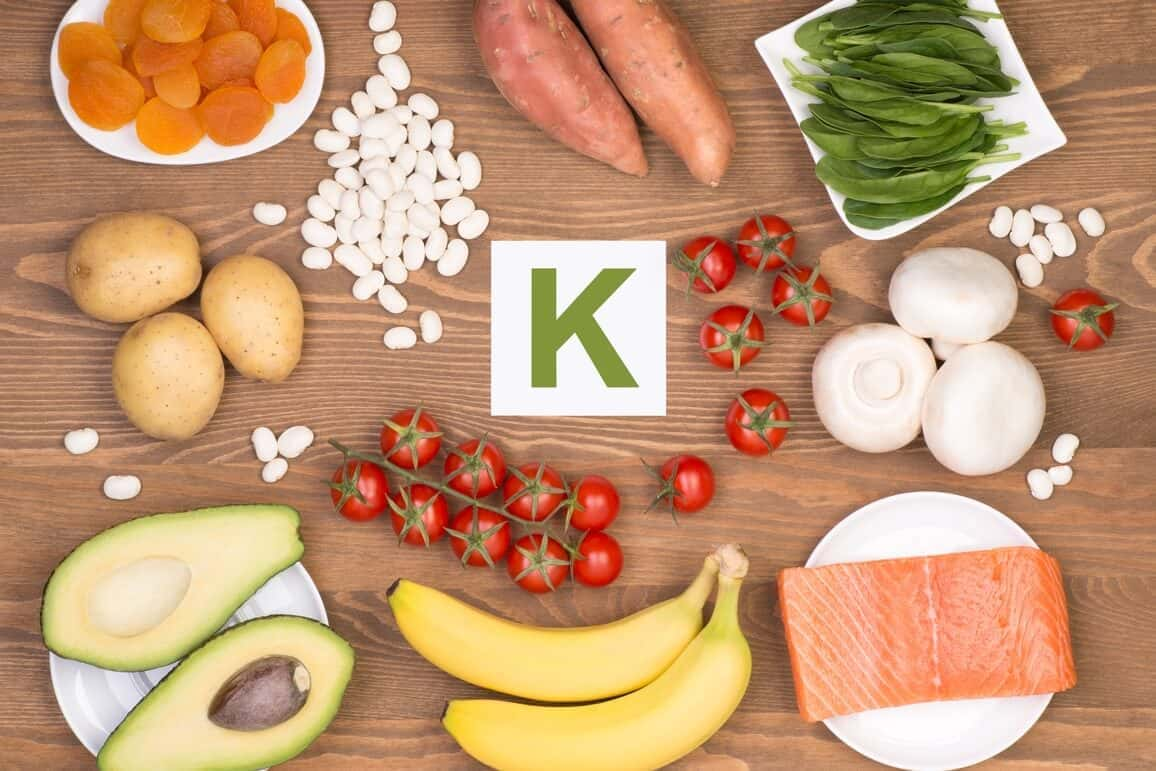About Vitamin K
About Vitamin K
The body needs vitamin K to produce prothrombin, a protein and clotting factor that is important in blood clotting and bone metabolism. People who use blood-thinning medications, such as warfarin, or Coumadin, should not start consuming additional vitamin K without first asking a doctor.
Vitamin K refers to a group of fat-soluble vitamins that play a role in blood clotting, bone metabolism, and regulating blood calcium levels.
There are two main kinds of vitamin K. Vitamin K1 (phylloquinone) comes from plants, especially leafy green vegetables like spinach and kale. Vitamin K2 (menaquinone) is naturally created in the intestinal tract and works similarly to K1.
Vitamin K deficiency is rare in adults because many of the foods we eat contain adequate amounts of K1 and because the body makes K2. In addition, the body is very good at recycling its supply of vitamin K. The telltale sign of vitamin K deficiency is bleeding too much. Vitamin K deficiency is much more common in infants.

Vitamin K benefits the body in various ways.
Bone health
There appears to be a correlation between low intake of vitamin K and osteoporosis.
Several studies have suggested that vitamin K supports the maintenance of strong bones, improves bone density and decreases the risk of fractures. However, research has not confirmed this.
Cognitive health
Increased blood levels of vitamin K have been linked with improved episodic memory in older adults.
In one study, healthy individuals over the age of 70 years with the highest blood levels of vitamin K1 had the highest verbal episodic memory performance.
Heart health
Vitamin K may help keep blood pressure lower by preventing mineralization, where minerals build up in the arteries. This enables the heart to pump blood freely through the body.
Mineralization naturally occurs with age, and it is a major risk factor for heart disease. Adequate intake of vitamin K has also been shown to lower the risk of stroke.

Sources of Vitamin K
Vitamin K1 occurs in high amounts in leafy green vegetables, such as kale and Swiss chard. Other sources include vegetable oils and some fruits.
Sources of menanoquines, or K2, include meat, dairy products, eggs, and Japanese “natto,” made from fermented soy beans.
Here are sample some food sources of vitamin K:
- 10 sprigs of parsley contains 90 micrograms (mcg)
- a 3-ounce serving of natto contains 850 mcg
- a half-cup serving of frozen and boiled collard greens contains 530 mcg
- one cup of raw spinach contains 145 mcg
- one tablespoon of soybean oil contains 25 mcg
- a half-cup serving of grapes contains 11 mcg
- a hard-boiled egg contains 4 mcg

Risks
No tolerable upper limit has been determined for vitamin K. Toxicity is rare and unlikely to result from eating foods containing vitamin K.
However, taking any type of supplement can lead to toxicity.
Vitamin K can interact with several common medications, including blood-thinners, anticonvulsants, antibiotics, cholesterol-lowering drugs, and weight-loss drugs.
Blood thinners, such as warfarin are used to prevent harmful blood clots that may block blood flow to the brain or heart. They work by decreasing or delaying vitamin K’s clotting ability. Suddenly increasing or decreasing vitamin K intake can interfere with the effects of these drugs. Keeping vitamin K intake consistent from day to day can prevent these problems.
Anticonvulsants, if taken during pregnancy or while breastfeeding, can increase the risk of vitamin K deficiency in a fetus or a newborn. Examples of anticonvulsants are phenytoin and dilantin.
Cholesterol-lowering medications interfere with fat absorption. Dietary fat is necessary for absorbing vitamin K, so people who are taking this medication may have a higher risk of deficiency.
Anyone who is taking any of these medications should speak to their doctor about their vitamin K intake.
The best way to ensure the body has sufficient nutrients is to consume a balanced diet, with plenty of fruit and vegetables. Supplements should only be used in case of deficiency, and then, under medical supervision.
Compiled and penned by Crocus Media


